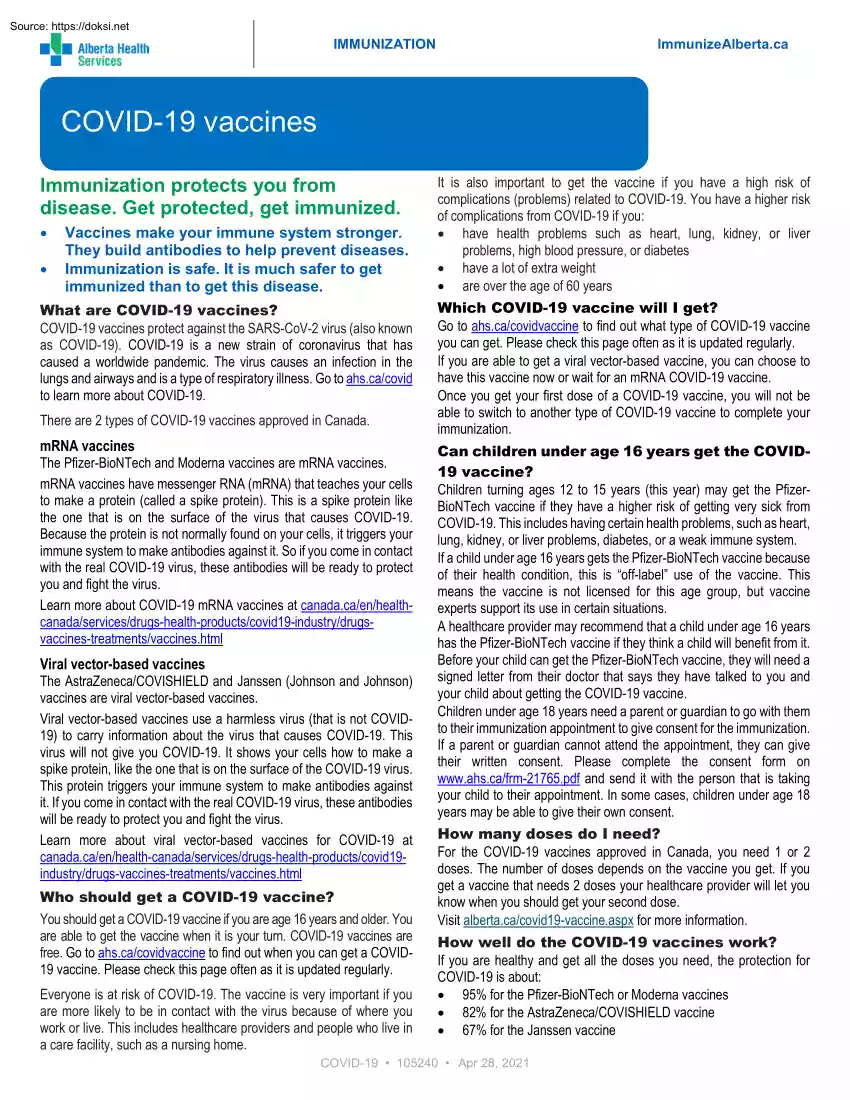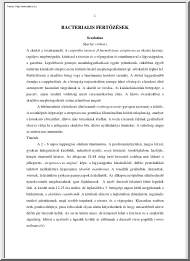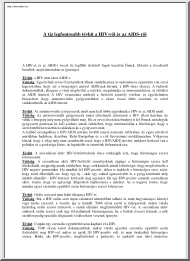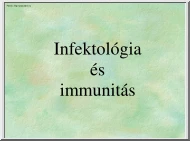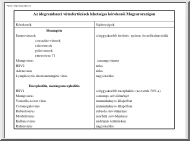Datasheet
Year, pagecount:2021, 2 page(s)
Language:English
Downloads:3
Uploaded:January 24, 2022
Size:744 KB
Institution:
-
Comments:
Alberta Health Services
Attachment:-
Download in PDF:Please log in!
Comments
No comments yet. You can be the first!Most popular documents in this category
Content extract
IMMUNIZATION ImmunizeAlberta.ca COVID-19 vaccines Immunization protects you from disease. Get protected, get immunized • • Vaccines make your immune system stronger. They build antibodies to help prevent diseases. Immunization is safe. It is much safer to get immunized than to get this disease. What are COVID-19 vaccines? COVID-19 vaccines protect against the SARS-CoV-2 virus (also known as COVID-19). COVID-19 is a new strain of coronavirus that has caused a worldwide pandemic. The virus causes an infection in the lungs and airways and is a type of respiratory illness. Go to ahsca/covid to learn more about COVID-19. There are 2 types of COVID-19 vaccines approved in Canada. mRNA vaccines The Pfizer-BioNTech and Moderna vaccines are mRNA vaccines. mRNA vaccines have messenger RNA (mRNA) that teaches your cells to make a protein (called a spike protein). This is a spike protein like the one that is on the surface of the virus that causes COVID-19. Because the protein is not
normally found on your cells, it triggers your immune system to make antibodies against it. So if you come in contact with the real COVID-19 virus, these antibodies will be ready to protect you and fight the virus. Learn more about COVID-19 mRNA vaccines at canada.ca/en/healthcanada/services/drugs-health-products/covid19-industry/drugsvaccines-treatments/vaccineshtml Viral vector-based vaccines The AstraZeneca/COVISHIELD and Janssen (Johnson and Johnson) vaccines are viral vector-based vaccines. Viral vector-based vaccines use a harmless virus (that is not COVID19) to carry information about the virus that causes COVID-19. This virus will not give you COVID-19. It shows your cells how to make a spike protein, like the one that is on the surface of the COVID-19 virus. This protein triggers your immune system to make antibodies against it. If you come in contact with the real COVID-19 virus, these antibodies will be ready to protect you and fight the virus. Learn more about viral
vector-based vaccines for COVID-19 at canada.ca/en/health-canada/services/drugs-health-products/covid19industry/drugs-vaccines-treatments/vaccineshtml Who should get a COVID-19 vaccine? You should get a COVID-19 vaccine if you are age 16 years and older. You are able to get the vaccine when it is your turn. COVID-19 vaccines are free. Go to ahsca/covidvaccine to find out when you can get a COVID19 vaccine Please check this page often as it is updated regularly Everyone is at risk of COVID-19. The vaccine is very important if you are more likely to be in contact with the virus because of where you work or live. This includes healthcare providers and people who live in a care facility, such as a nursing home. It is also important to get the vaccine if you have a high risk of complications (problems) related to COVID-19. You have a higher risk of complications from COVID-19 if you: • have health problems such as heart, lung, kidney, or liver problems, high blood pressure, or diabetes
• have a lot of extra weight • are over the age of 60 years Which COVID-19 vaccine will I get? Go to ahs.ca/covidvaccine to find out what type of COVID-19 vaccine you can get. Please check this page often as it is updated regularly If you are able to get a viral vector-based vaccine, you can choose to have this vaccine now or wait for an mRNA COVID-19 vaccine. Once you get your first dose of a COVID-19 vaccine, you will not be able to switch to another type of COVID-19 vaccine to complete your immunization. Can children under age 16 years get the COVID19 vaccine? Children turning ages 12 to 15 years (this year) may get the PfizerBioNTech vaccine if they have a higher risk of getting very sick from COVID-19. This includes having certain health problems, such as heart, lung, kidney, or liver problems, diabetes, or a weak immune system. If a child under age 16 years gets the Pfizer-BioNTech vaccine because of their health condition, this is “off-label” use of the vaccine. This
means the vaccine is not licensed for this age group, but vaccine experts support its use in certain situations. A healthcare provider may recommend that a child under age 16 years has the Pfizer-BioNTech vaccine if they think a child will benefit from it. Before your child can get the Pfizer-BioNTech vaccine, they will need a signed letter from their doctor that says they have talked to you and your child about getting the COVID-19 vaccine. Children under age 18 years need a parent or guardian to go with them to their immunization appointment to give consent for the immunization. If a parent or guardian cannot attend the appointment, they can give their written consent. Please complete the consent form on www.ahsca/frm-21765pdf and send it with the person that is taking your child to their appointment. In some cases, children under age 18 years may be able to give their own consent. How many doses do I need? For the COVID-19 vaccines approved in Canada, you need 1 or 2 doses. The
number of doses depends on the vaccine you get If you get a vaccine that needs 2 doses your healthcare provider will let you know when you should get your second dose. Visit alberta.ca/covid19-vaccineaspx for more information How well do the COVID-19 vaccines work? If you are healthy and get all the doses you need, the protection for COVID-19 is about: • 95% for the Pfizer-BioNTech or Moderna vaccines • 82% for the AstraZeneca/COVISHIELD vaccine • 67% for the Janssen vaccine COVID-19 • 105240 • Apr 28, 2021 After 1 dose of any COVID-19 vaccine, your risk of getting COVID-19 is lowered by about 60 to 80%. All COVID-19 vaccines work very well to lower your risk of getting seriously ill from COVID-19. They also lower your risk of needing to be in the hospital. At this time, there is not enough information to know how long protection lasts or if you will need booster doses. It is still important to practice the recommended public health measures to prevent the spread of
COVID19, even if you have had the vaccine. This includes: • following guidelines of when to wear a mask or other equipment that helps protect you • washing your hands often • staying 2 meters away from others • staying home when you are sick (this means isolating) • staying home for 14 days after having close contact with someone who has COVID-19 or after returning from travel outside of Canada (this means quarantining) Visit ahs.ca/covid for more information, including information about isolation and quarantine. Where can I get a COVID-19 vaccine? Go to ahs.ca/covidvaccine to find out where and when you can get the COVID-19 vaccine. Are there side effects from COVID-19 vaccines? There can be side effects from COVID-19 vaccines, but they tend to be mild and go away in a few days. Side effects may include: • redness, warmth, swelling, bruising, itching, or feeling sore where you had the needle • feeling tired or unwell • a headache • a fever or chills • body aches
or sore joints • feeling sick to your stomach (nausea), vomiting (throwing up), or loose stool (diarrhea) • swollen lymph nodes It is important to stay at the clinic for 15 minutes after your vaccine. Some people may have a rare but serious allergic reaction called anaphylaxis. If anaphylaxis happens, you will get medicine to treat the symptoms. It is rare to have a serious side effect after a vaccine. Call Health Link at 811 to report any serious or unusual side effects. Rare events after getting either the AstraZeneca/COVISHIELD or the Janssen vaccine There have been very rare reports of blood clots, low levels of platelets (these help your blood to clot), and bleeding after getting either the AstraZeneca/COVISHIELD or the Janssen vaccine. These events happened 4 to 28 days after getting the vaccine. The risk of these events is about 1 case in 100,000 to 250,000 doses of the AstraZeneca/COVISHIELD vaccine. Research is ongoing to find out the risk of these events after getting the
Janssen vaccine. COVID-19 continues to spread at a high rate in Alberta. Your risk of serious illness from COVID-19 is much higher than it is for developing a rare event after getting these vaccines. Go to COVID-19 vaccine – Frequently Asked Questions on ahs.ca/topics/Page17389aspx for more information If you have any of the following symptoms, get medical help right away: • shortness of breath • chest pain • leg swelling • stomach pain that does not go away • a severe headache that does not go away • blurry vision • bruising (other than where you had the needle) • red or purple spots anywhere on your body • bleeding (more easily than normal) How can I manage side effects? • To help with soreness and swelling, put a cool, wet cloth over the area where you had the needle. • There is medicine to help with a fever or pain. Check with your doctor or pharmacist if you are not sure what medicine or dose to take. Follow the directions on the package • Children under
the age of 18 years should not take aspirin because it can cause serious health problems. • Some people with health problems, such as a weak immune system, must call their doctor if they get a fever. If you have been told to do this, call your doctor even if you think the fever is from the vaccine. What if I had or am getting another type of vaccine? Wait at least 28 days after you have a dose of the COVID-19 vaccine before you get another vaccine. If you have had another vaccine, wait 14 days before you get a COVID19 vaccine. Who should not have a COVID-19 vaccine? You may not be able to have a COVID-19 vaccine if you: • have an allergy to any part of the vaccine • had a severe (serious) or unusual side effect after this vaccine or one like it • are under age 11 years • have had another vaccine in the last 2 weeks Check with your doctor or a public health nurse before you get the vaccine. Be sure to talk to your doctor before you get a COVID-19 vaccine, if you: • have a
weak immune system (because of a medicine you take or a health problem) • have an autoimmune disorder (like rheumatoid arthritis or lupus) • are pregnant, breastfeeding, or plan to get pregnant in the next 28 days • are under age 16 years and have a health condition that puts you at a higher risk of getting very sick from COVID-19 (You need a signed letter from your doctor to get the COVID-19 vaccine.) Always tell your healthcare provider if you have allergies or if you have had a side effect from a vaccine in the past. For More Information Call Health Link at 811 Go to ImmunizeAlberta.ca Go to MyHealth.Albertaca Go to ahs.ca/covidvaccine COVID-19 • 105240 • Apr 28, 2021
normally found on your cells, it triggers your immune system to make antibodies against it. So if you come in contact with the real COVID-19 virus, these antibodies will be ready to protect you and fight the virus. Learn more about COVID-19 mRNA vaccines at canada.ca/en/healthcanada/services/drugs-health-products/covid19-industry/drugsvaccines-treatments/vaccineshtml Viral vector-based vaccines The AstraZeneca/COVISHIELD and Janssen (Johnson and Johnson) vaccines are viral vector-based vaccines. Viral vector-based vaccines use a harmless virus (that is not COVID19) to carry information about the virus that causes COVID-19. This virus will not give you COVID-19. It shows your cells how to make a spike protein, like the one that is on the surface of the COVID-19 virus. This protein triggers your immune system to make antibodies against it. If you come in contact with the real COVID-19 virus, these antibodies will be ready to protect you and fight the virus. Learn more about viral
vector-based vaccines for COVID-19 at canada.ca/en/health-canada/services/drugs-health-products/covid19industry/drugs-vaccines-treatments/vaccineshtml Who should get a COVID-19 vaccine? You should get a COVID-19 vaccine if you are age 16 years and older. You are able to get the vaccine when it is your turn. COVID-19 vaccines are free. Go to ahsca/covidvaccine to find out when you can get a COVID19 vaccine Please check this page often as it is updated regularly Everyone is at risk of COVID-19. The vaccine is very important if you are more likely to be in contact with the virus because of where you work or live. This includes healthcare providers and people who live in a care facility, such as a nursing home. It is also important to get the vaccine if you have a high risk of complications (problems) related to COVID-19. You have a higher risk of complications from COVID-19 if you: • have health problems such as heart, lung, kidney, or liver problems, high blood pressure, or diabetes
• have a lot of extra weight • are over the age of 60 years Which COVID-19 vaccine will I get? Go to ahs.ca/covidvaccine to find out what type of COVID-19 vaccine you can get. Please check this page often as it is updated regularly If you are able to get a viral vector-based vaccine, you can choose to have this vaccine now or wait for an mRNA COVID-19 vaccine. Once you get your first dose of a COVID-19 vaccine, you will not be able to switch to another type of COVID-19 vaccine to complete your immunization. Can children under age 16 years get the COVID19 vaccine? Children turning ages 12 to 15 years (this year) may get the PfizerBioNTech vaccine if they have a higher risk of getting very sick from COVID-19. This includes having certain health problems, such as heart, lung, kidney, or liver problems, diabetes, or a weak immune system. If a child under age 16 years gets the Pfizer-BioNTech vaccine because of their health condition, this is “off-label” use of the vaccine. This
means the vaccine is not licensed for this age group, but vaccine experts support its use in certain situations. A healthcare provider may recommend that a child under age 16 years has the Pfizer-BioNTech vaccine if they think a child will benefit from it. Before your child can get the Pfizer-BioNTech vaccine, they will need a signed letter from their doctor that says they have talked to you and your child about getting the COVID-19 vaccine. Children under age 18 years need a parent or guardian to go with them to their immunization appointment to give consent for the immunization. If a parent or guardian cannot attend the appointment, they can give their written consent. Please complete the consent form on www.ahsca/frm-21765pdf and send it with the person that is taking your child to their appointment. In some cases, children under age 18 years may be able to give their own consent. How many doses do I need? For the COVID-19 vaccines approved in Canada, you need 1 or 2 doses. The
number of doses depends on the vaccine you get If you get a vaccine that needs 2 doses your healthcare provider will let you know when you should get your second dose. Visit alberta.ca/covid19-vaccineaspx for more information How well do the COVID-19 vaccines work? If you are healthy and get all the doses you need, the protection for COVID-19 is about: • 95% for the Pfizer-BioNTech or Moderna vaccines • 82% for the AstraZeneca/COVISHIELD vaccine • 67% for the Janssen vaccine COVID-19 • 105240 • Apr 28, 2021 After 1 dose of any COVID-19 vaccine, your risk of getting COVID-19 is lowered by about 60 to 80%. All COVID-19 vaccines work very well to lower your risk of getting seriously ill from COVID-19. They also lower your risk of needing to be in the hospital. At this time, there is not enough information to know how long protection lasts or if you will need booster doses. It is still important to practice the recommended public health measures to prevent the spread of
COVID19, even if you have had the vaccine. This includes: • following guidelines of when to wear a mask or other equipment that helps protect you • washing your hands often • staying 2 meters away from others • staying home when you are sick (this means isolating) • staying home for 14 days after having close contact with someone who has COVID-19 or after returning from travel outside of Canada (this means quarantining) Visit ahs.ca/covid for more information, including information about isolation and quarantine. Where can I get a COVID-19 vaccine? Go to ahs.ca/covidvaccine to find out where and when you can get the COVID-19 vaccine. Are there side effects from COVID-19 vaccines? There can be side effects from COVID-19 vaccines, but they tend to be mild and go away in a few days. Side effects may include: • redness, warmth, swelling, bruising, itching, or feeling sore where you had the needle • feeling tired or unwell • a headache • a fever or chills • body aches
or sore joints • feeling sick to your stomach (nausea), vomiting (throwing up), or loose stool (diarrhea) • swollen lymph nodes It is important to stay at the clinic for 15 minutes after your vaccine. Some people may have a rare but serious allergic reaction called anaphylaxis. If anaphylaxis happens, you will get medicine to treat the symptoms. It is rare to have a serious side effect after a vaccine. Call Health Link at 811 to report any serious or unusual side effects. Rare events after getting either the AstraZeneca/COVISHIELD or the Janssen vaccine There have been very rare reports of blood clots, low levels of platelets (these help your blood to clot), and bleeding after getting either the AstraZeneca/COVISHIELD or the Janssen vaccine. These events happened 4 to 28 days after getting the vaccine. The risk of these events is about 1 case in 100,000 to 250,000 doses of the AstraZeneca/COVISHIELD vaccine. Research is ongoing to find out the risk of these events after getting the
Janssen vaccine. COVID-19 continues to spread at a high rate in Alberta. Your risk of serious illness from COVID-19 is much higher than it is for developing a rare event after getting these vaccines. Go to COVID-19 vaccine – Frequently Asked Questions on ahs.ca/topics/Page17389aspx for more information If you have any of the following symptoms, get medical help right away: • shortness of breath • chest pain • leg swelling • stomach pain that does not go away • a severe headache that does not go away • blurry vision • bruising (other than where you had the needle) • red or purple spots anywhere on your body • bleeding (more easily than normal) How can I manage side effects? • To help with soreness and swelling, put a cool, wet cloth over the area where you had the needle. • There is medicine to help with a fever or pain. Check with your doctor or pharmacist if you are not sure what medicine or dose to take. Follow the directions on the package • Children under
the age of 18 years should not take aspirin because it can cause serious health problems. • Some people with health problems, such as a weak immune system, must call their doctor if they get a fever. If you have been told to do this, call your doctor even if you think the fever is from the vaccine. What if I had or am getting another type of vaccine? Wait at least 28 days after you have a dose of the COVID-19 vaccine before you get another vaccine. If you have had another vaccine, wait 14 days before you get a COVID19 vaccine. Who should not have a COVID-19 vaccine? You may not be able to have a COVID-19 vaccine if you: • have an allergy to any part of the vaccine • had a severe (serious) or unusual side effect after this vaccine or one like it • are under age 11 years • have had another vaccine in the last 2 weeks Check with your doctor or a public health nurse before you get the vaccine. Be sure to talk to your doctor before you get a COVID-19 vaccine, if you: • have a
weak immune system (because of a medicine you take or a health problem) • have an autoimmune disorder (like rheumatoid arthritis or lupus) • are pregnant, breastfeeding, or plan to get pregnant in the next 28 days • are under age 16 years and have a health condition that puts you at a higher risk of getting very sick from COVID-19 (You need a signed letter from your doctor to get the COVID-19 vaccine.) Always tell your healthcare provider if you have allergies or if you have had a side effect from a vaccine in the past. For More Information Call Health Link at 811 Go to ImmunizeAlberta.ca Go to MyHealth.Albertaca Go to ahs.ca/covidvaccine COVID-19 • 105240 • Apr 28, 2021
